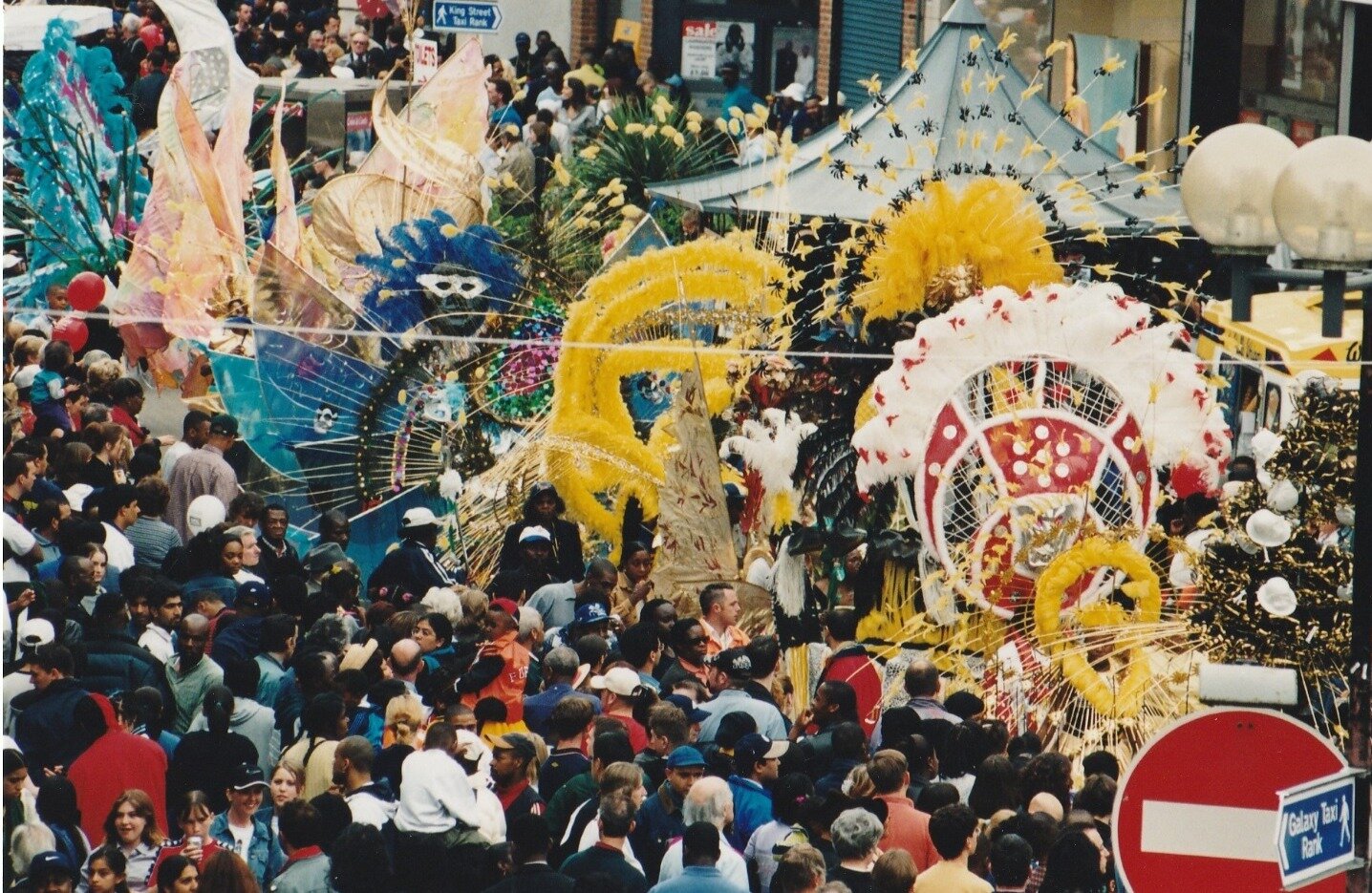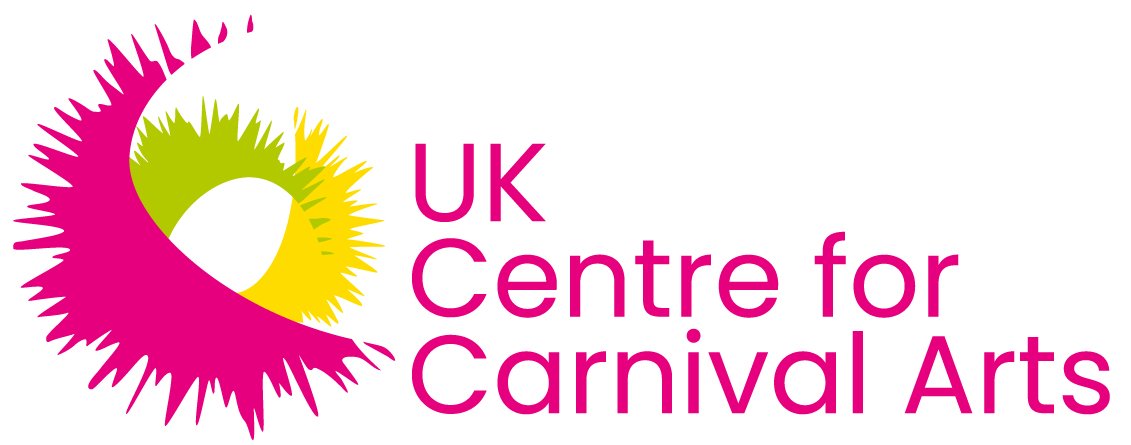
Luton International Carnival History
Luton has a long history of parades dating back to the 1400s. In 1976, the Caribbean carnival culture made its impact in Luton, which can be seen today. Luton InternationalCarnival forged its way to being the biggest one-day carnival in the UK by 2012. The UKCentre for carnival arts was opened in 2009 in response to the vibrant carnival culture in Luton, and the collective cultural impact carnivals around the UK have had on British society.
2020-2021 The COVID Years
In 2021 the Carnival is cancelled for a second year due to the ongoing COVID-19 pandemic. UKCCA along with Carnival partners across the UK launch ‘National Children’s Carnival Week’.
"Our dream is to have all children in the UK celebrate carnival together in their schools."
National Children’s Carnival Week at The Meads Primary School Luton
In 2020 the Carnival was moved from July back to May to mark the 75 years since VE Day, this was cancelled due to the world wide COVID-19 pandemic.
Screen shot of a new story which talks about how Luton Carnival has been cancelled again but how children can still enjoy carnival with National Children’s Carnival Week.
2012 An Olympic Carnival
The Carnival was moved from May to July to coincide with the arrival of the Olympic Torch in Luton. It has become the biggest one day Carnival in the UK.
2012 Luton Carnival | Carnival Archive
2009 UK Centre For Carnival Arts
Luton's reputation as a carnival town is cemented with the opening of the UK Centre for Carnival Arts.
The launch event was a large scale celebration to inaugurate the new UK Centre for Carnival Arts’ building. The aspiration for this event was to showcase the very best in costume design, carnival music and dance. A spectacular night time parade processed through the centre of Luton and culminated in a performance that featured the illuminated new building as a back drop to the events happening on the street.
Opening of UK's Centre for Carnival Arts in Luton| LNTV Bedfordshire
2007 Carnival cancelled
Carnival cancelled due to heavy rain and flooding. Read BBC News coverage here.
New story on BBC Local about flooding in Luton which caused the Carnival to be cancelled.
1998 International status
Luton Carnival acquired International status.
1976 The first Luton Carnival as we know it
This began as a Victorian Fayre with a procession and was held to celebrate the 100th anniversary of Luton becoming a Borough. Over the years the fair element has declined and now the focus is on the carnival procession.
This video is from 1964, but watch out for the Steelpan Band at the end. Is this the first glimpse of the Caribbean influence in Luton parades?
Luton Independence Day Parade, 1964 | Emerton321
1953 Easter Bonnet Parade
This is possibly when the first Easter Bonnet parade was held to tie in with celebrations of the Coronation of Elizabeth II. There was also a need to revitalise the hat industry after the Second World War and an Easter Bonnet Parade was seen as a good way of doing this. To boost worker morale they chose a Carnival Queen from amongst the female workers in the hat factories.
Luton Easter Hat Parade (1955) | British Pathé
From the 1950s St George's Day parades
St George's Day parades focus on a parade of Scouts and Servicemen, they still take place today.
St George’s Day Parade. George Street, Luton, 1967
1945 VE Day
The heyday of the street party was VE Day which marked the end of war in Europe.
1939-1945 The Second World War
Carnivals and parades were held during this time to raise money for the war effort.
VE Day parade in George Street, Luton, on May 8, 1945.
1935 King George V Silver Jubilee
The Silver Jubilee of George V in 1935 also saw a lot of street processions in Luton.
Silver Jubilee Parade 1935, Biddenham, Bedfordshire.
1919 The Peace Day Riots
Saturday July 19th 1919 was a national day of celebrations. In Luton, events started with a procession to the Town Hall from Luton Hoo.
Angry at the lack of jobs (servicemen had been promised that post-war Britain would be a 'Land it for Heroes' by the government) and the continuation of rationing, some ration books were set on fire and this quickly spread. The result was that the whole town hall was burnt down. Although riots also broke out in other towns and cities on this day, Luton was the only place to lose the whole building.
Luton Peace Day Parade Saturday July 19th 1919
1896 Opening of the Plait Halls
In Luton they held a procession to celebrate the opening of the Plait Halls. These were a form of indoor market and opened in 1869. These covered the area that is now The Mall. The Plait Halls were where straw plaits were sold that could be made into hats or bonnets.
A description of the event from the London Illustrated News: "January 30th 1869 procession, with flags, music, and a guard of rifle volunteers from the Town-hall, through George-street and Cheapside, to the Waller-street entrance.
The ceremony of opening took place in the Plait Hall on that side, which had been decorated with mottoes beautifully worked in straw, and hung upon the walls, besides ornamental sheaves of wheatstraw, evergreen garlands, and banners."
Illustration of the procession to celebrate the opening of the Plait Halls.
1400s Guild Feasts
Guild Feasts began in Luton in the late 1400s and these included a procession. Jubilee celebrations were popular under Queen Victoria, due to increased communications across the country and the length of Victoria's reign.
Diamond Jubilee Procession 22 June 1897, Watford High Street.








